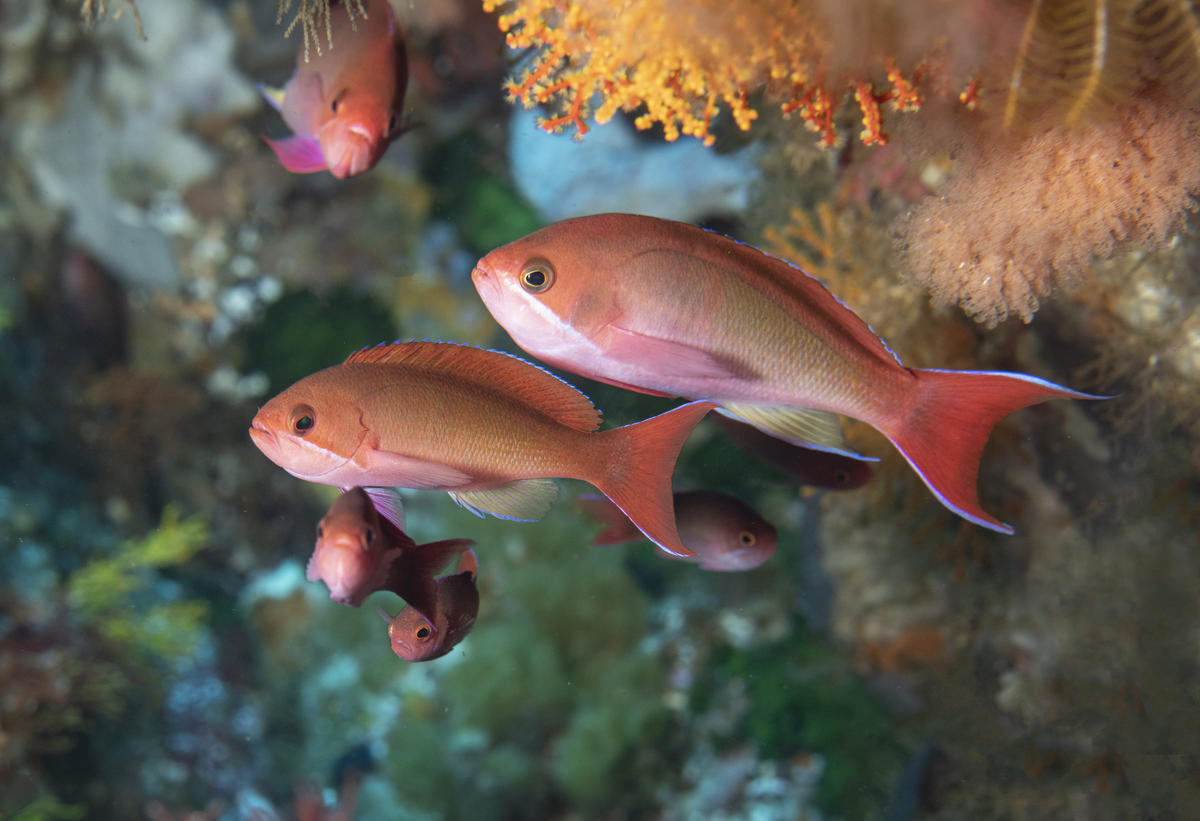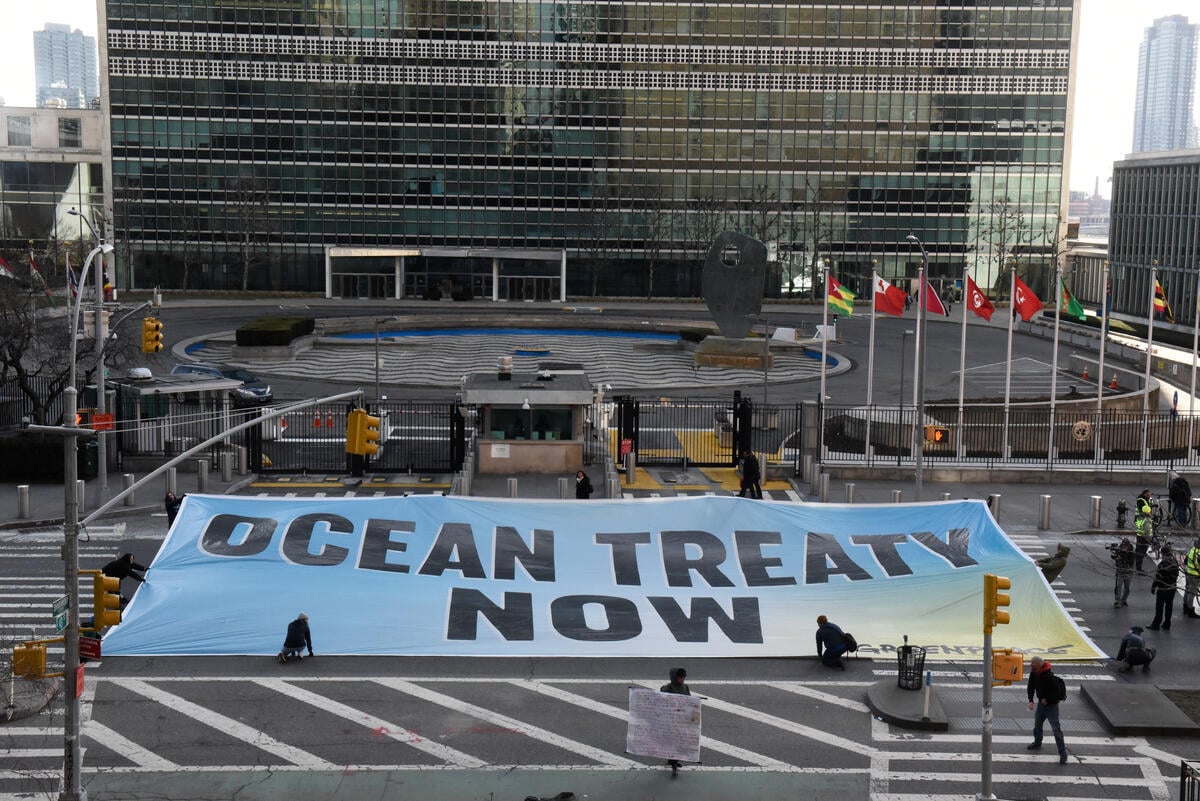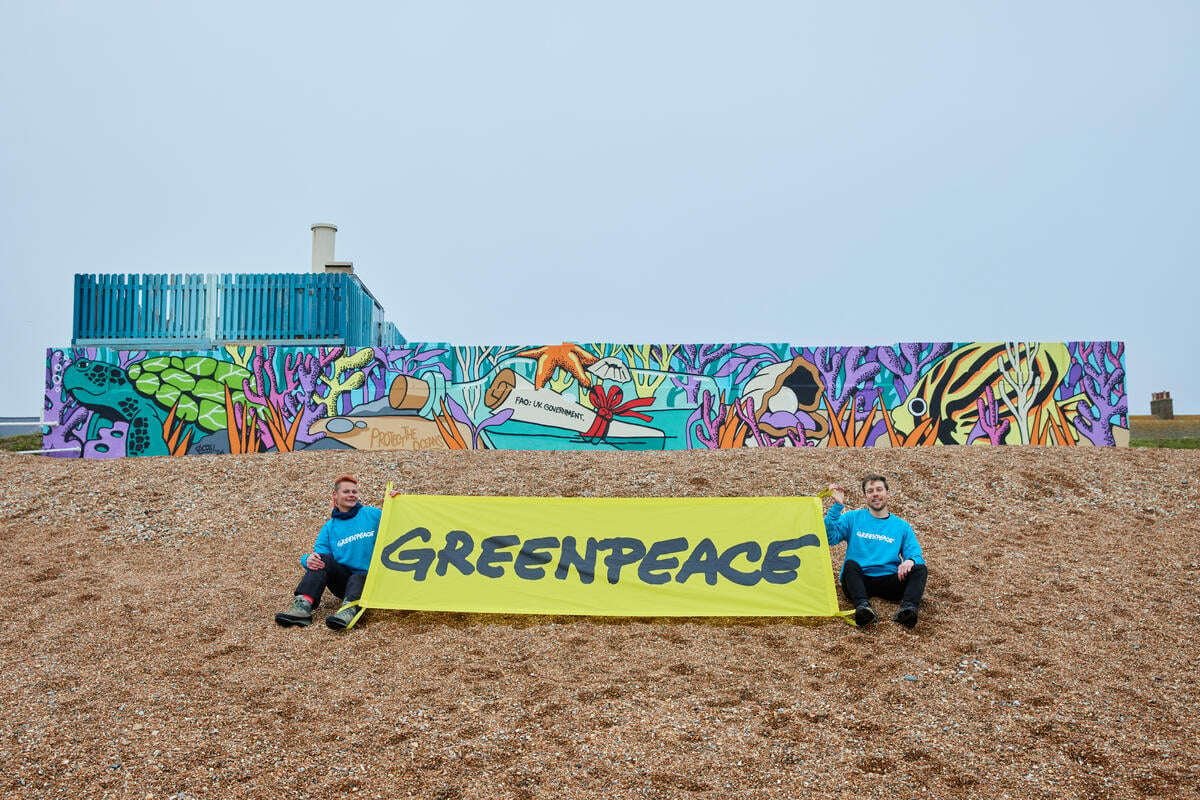All our lives, we are used to hearing people say “put yourself in their shoes” when they want us to empathise with someone. But today, I’m inviting you to put yourself in the boots of an Indonesian migrant fisher.
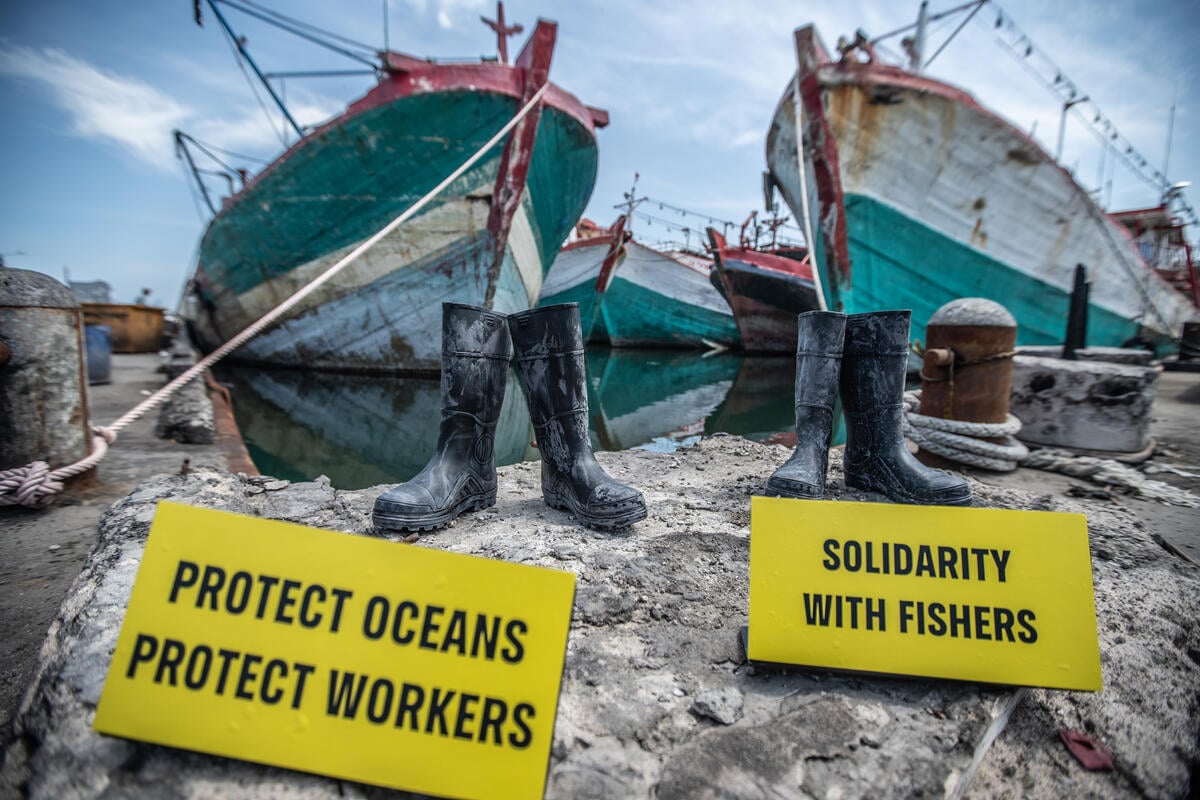
“One time, the rope holding the weighing gear broke and dropped a load of fish on me, cutting my leg open from thigh to shin. I was ordered to keep working. I thought there was water filling my boot, but I realised it was my own blood. I could see the bone in my leg. I was left to clean and bandage my leg myself, without sterile medical supplies, and I kept bleeding for two weeks. It still hurts and probably always will,” Akhmad said.
On fishing vessels, suitable rubber boots are essential for the fishers’ safety at sea as they catch fish for the $350 billion global seafood industry. But this is not a story about boots–it’s about what the boots represent.
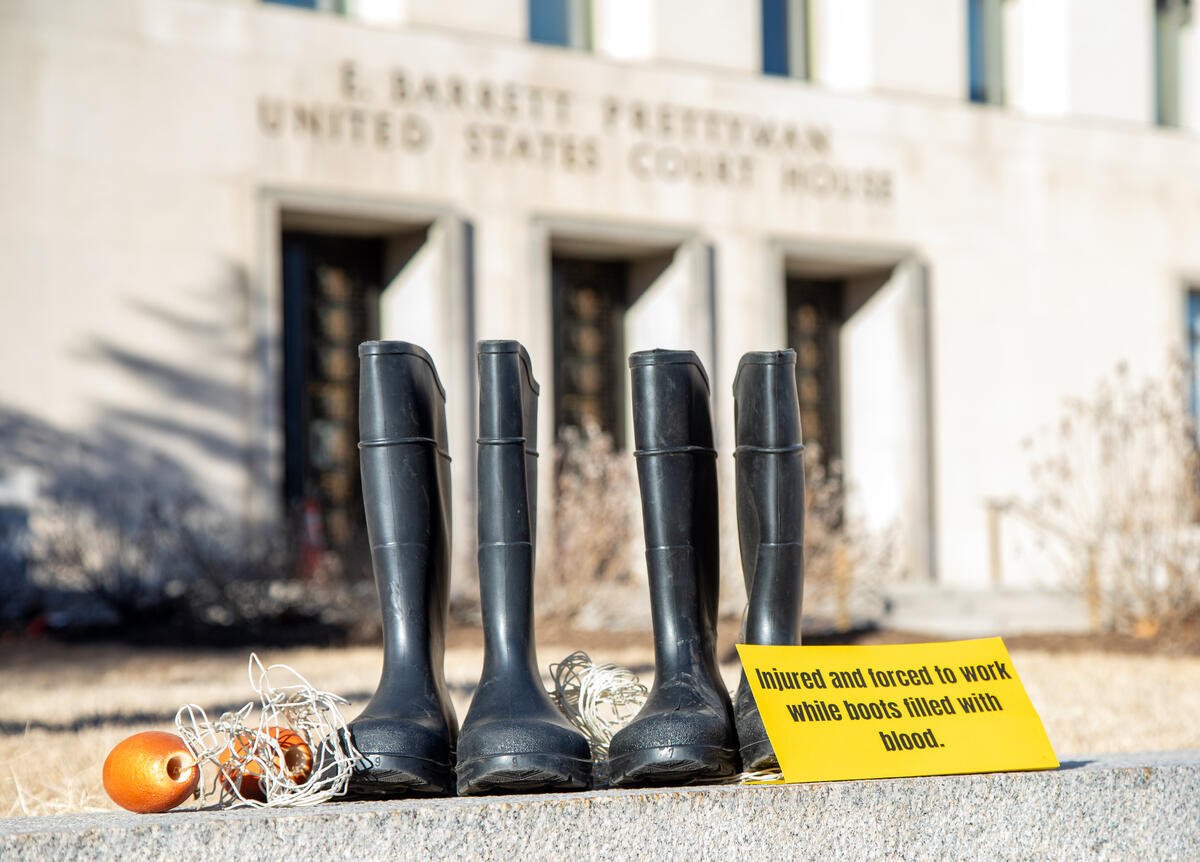
According to Akhmad’s allegations in a legal complaint, he was wearing boots during a work accident that he said he still suffers from to this day. Here are some key points from Akhmad’s allegations according to a lawsuit that he and three other Indonesians filed at a US court in March 2025:
“Once on board, Akhmad worked 18 hours per day, 7 days per week. Once a month, the crew had a “break day.” On that day, they worked only 10 or 12 hours. During break day, the crew fixed hooks, cleaned the freezer, and performed other maintenance. During his entire time aboard, Akhmad only had New Years off.” (Allegations, ℙ99)
“The captain and the senior crew abused the fishers. The captain beat Akhmad and the other workers, including with a metal hook. The mandor beat Akhmad and the other crew members about the head, stopping when he drew blood. Akhmad was hit too often to count.” (Allegations, ℙ100)
“Akhmad was afraid to leave because he knew that quitting put his family
at risk. Nonetheless, eventually, he and a fellow fisher asked the captain to go home. The captain responded with a threat, If you want to go home, you can swim in the ocean.’” (Allegations, ℙ105)
“Ultimately, Akhmad was able to get word to his wife, who contacted the
Indonesian Migrant Workers’ Union, SBMI. When the vessel finally docked in Fiji in March 2023, SBMI worked with IOM and the local police to obtain Akhmad’s release, as well as the release of his fellow fishers.” (Allegations, ℙ106)
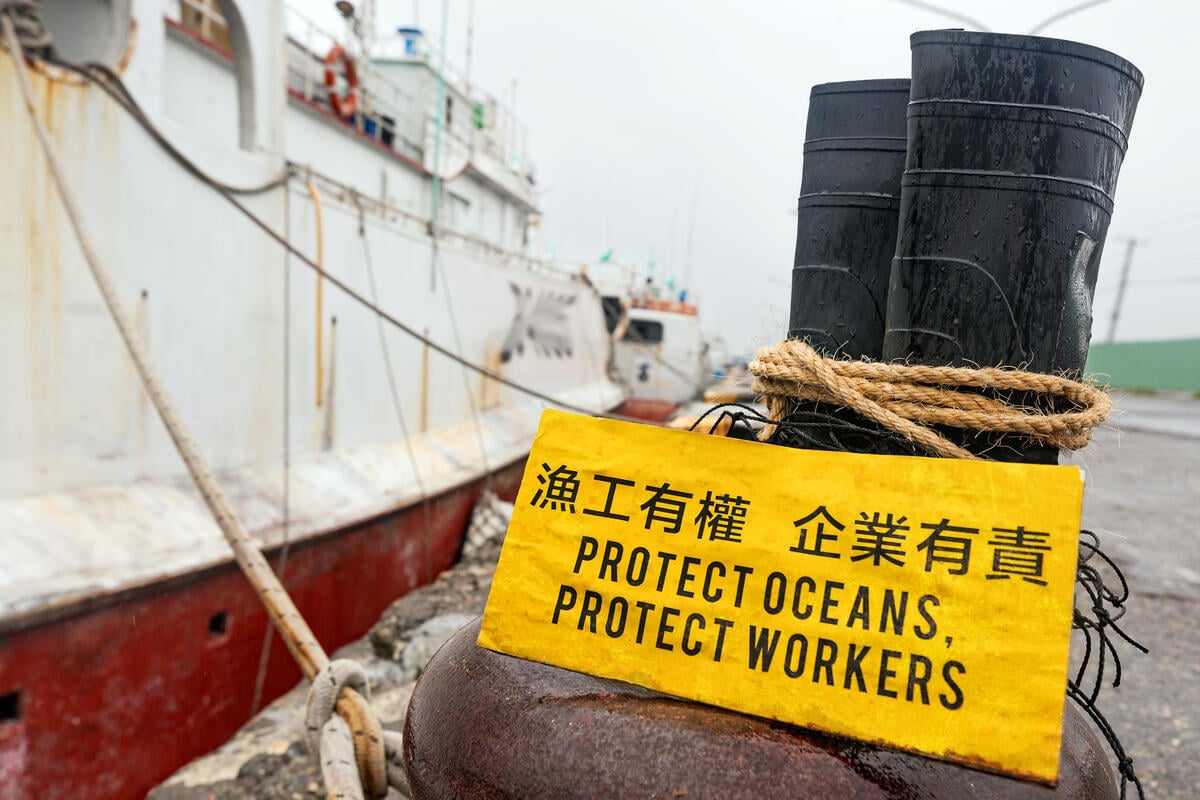
Akhmad and his fellow litigants have now embarked on a journey to fight for justice.
The lawsuit, under the Trafficking Victims Protection Reauthorization Act (TVPRA), exposes the broken system behind the billion-dollar fishing industry where thousands of fishers like Akhmad are trapped and isolated. The suit alleges that Bumble Bee knew or should have known about the exploitation these plaintiff fishers experienced on board, yet knowingly benefited from it.
Boots for justice and solidarity
The conditions Akhmad alleges are not unique. The International Labor Organization in 2021 identified at least 128,000 people in situations of forced labour on the high seas. Inspired by hundreds of fishers’ stories of their experiences, Greenpeace activists in Indonesia, Taiwan, and the US printed some of these stories onto plaques and placed them in front of rubber boots.
“Two years of work. Unpaid.”
“Missed my child’s birth.”
“Didn’t see land for two years.”
The boots bear witness, not only to exploitation at sea but also the resilience of the fishers seeking justice from a big US corporation.
The pictures in this blog are a series of photos in Greenpeace Beyond Seafood’s “Boots to Boost Justice” campaign, which hopefully will inspire more and more people to stand in solidarity with migrant fishers everywhere.
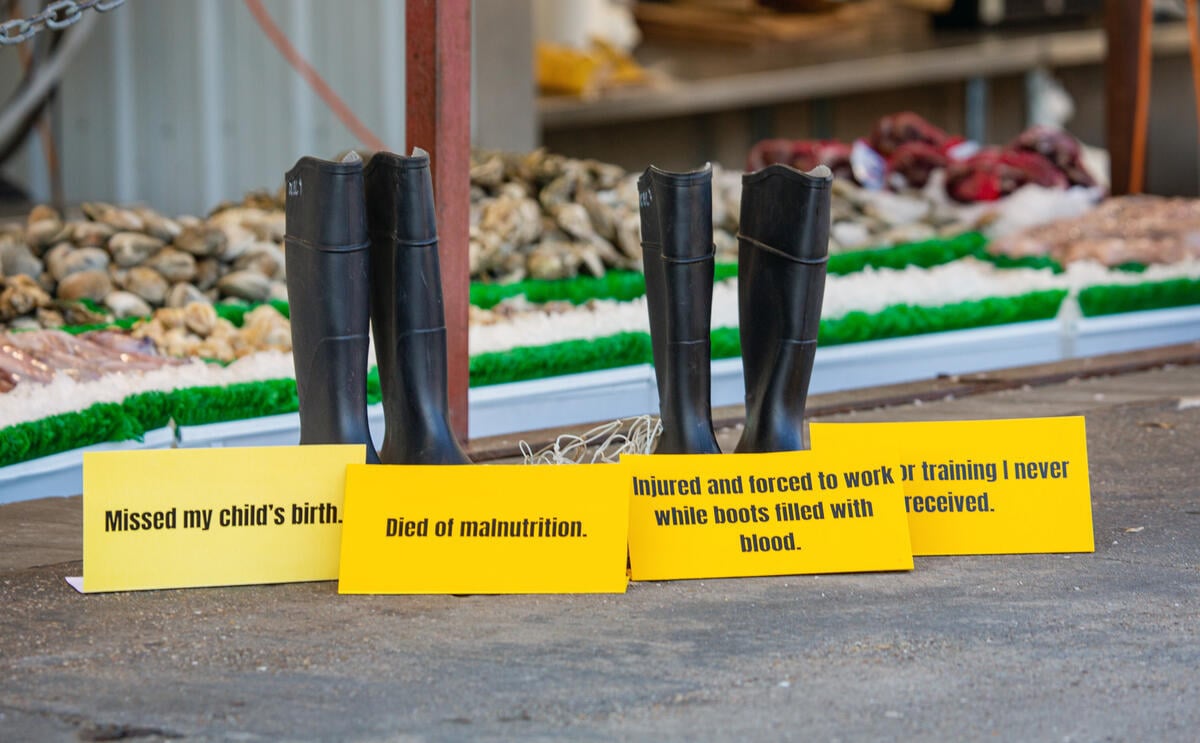
American, Indonesian, and Taiwanese governments, as well as seafood and fishing companies represent critical links in the global seafood supply chain. Indonesia is home to thousands of migrant fishers who work aboard industrial fishing vessels, while Taiwan has the second-largest global fleet of industrial fishing vessels. Meanwhile, the US is the world’s single largest importer of seafood.
While the plaintiff fishers are still fighting for justice in court, the time to act is now. Companies don’t need to wait for the law. There’s plenty they can do now to help protect the oceans and protect workers in their supply chain.
Key players throughout the supply chain in this multi-billion dollar industry can help turn the tide towards a more sustainable and just future for fishers. They can do this by working to end isolation at sea by mandating free, accessible, and secure WiFi on all vessels they source from; ensuring that fishers are at sea for a max of 3 months between port visits; and that there is 100% observer coverage (human or electronic) on all source vessels.
Stand with migrant fishers and sign the petition today.
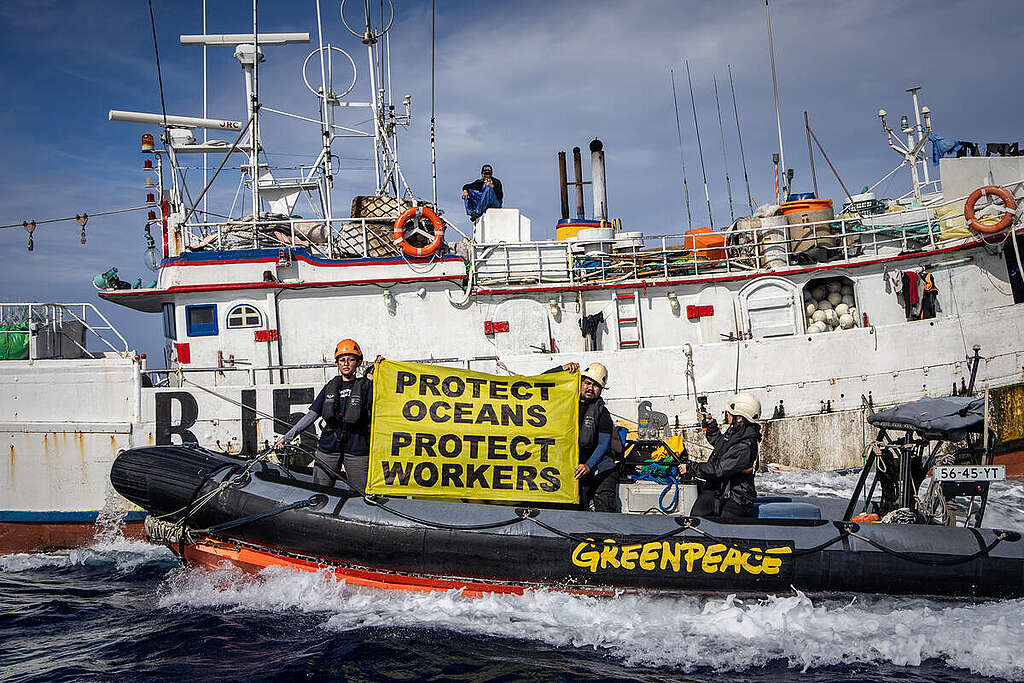
Tell “Big Seafood” to end isolation at sea- it’s time to protect oceans, protect workers.
Add your nameVela Andapita and Elizabeth Monaghan are, respectively, global communications lead and global engagement lead for Beyond Seafood project in Greenpeace Southeast Asia.

